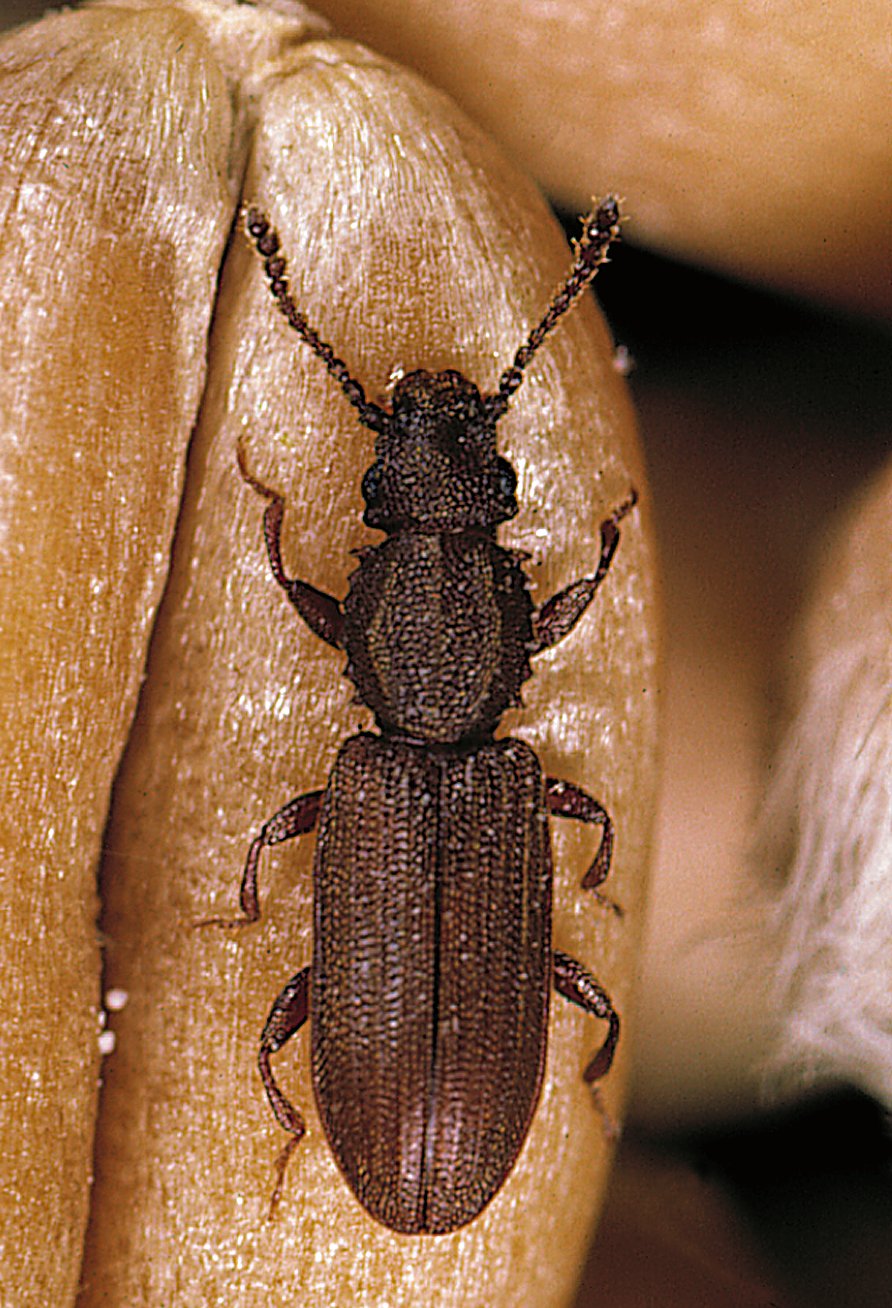
Mites, weevils and beetles are frequent problems in grain and grain stores and can be responsible for up to 10% of yield loss. To help insure against this, control measures should start up to one month before filling the store, through pre-harvest hygiene with the broad-spectrum insecticide and acaricide option, such as Reldan 22.
"Growers have a much more limited choice of insecticides that they can use to treat the fabric of the grain stores nowadays. The approval of Actellic (pirimiphos-methyl) for use as a structural treatment was revoked earlier this year, with the last use by growers being in March, and so this has taken one option out of the equation. Other products can’t be used on all cereals, such as milling wheat, and others don’t control mites, which are major and common pests in grain. But Reldan 22 is fully registered for this use as well as on stored grain, can be used in wheat, barley, oats, rye and triticale stores and it will control all major pests of stored grain, including mites, weevils, beetles and moths. It also is accepted by the British Beer and Pub Association (BBPA) and the Brewing Research International (BRI) for use on cereals for malting and brewing. It has the full package when it comes to this type of treatment," says Brent Gibbon of Dow AgroSciences.
"Up to 10% of grain yield can be lost to pest and mite damage after harvest. These pests also damage grain directly, leading to poorer grain quality, including taint and extraneous insect fragments, as well as reducing nutritional value. Pest activity can also cause over heating in the grain pile, leading to the development of moulds. The infestations never occur in the field, but only in the store. Stored grain is subject to a wide range of insect and mite infestations including common flour mite, cosmopolitan food mite, grain weevil, warehouse moth, saw-toothed grain beetle, red-rust flour beetle and merchant grain beetle, all of which are controlled by Reldan," says Brent.
"This is why empty grain stores need to be thoroughly cleaned and treated with Reldan 22. You need around one month lead time, so now is the time to start. When the grain store is empty and up to one month before filling it again, it should be cleaned out of old grain, dust and debris which may be harbouring insects. Any grain handling equipment will also need cleaning."
"Then you can spray all structural surfaces of the empty store and handling machinery, taking care to treat all cracks, crevices and joints. There are several options for application, by knapsack sprayer with fan spray nozzles, by motorised knapsack sprayer or tractor-operated spray lance. Reldan is applied as 200 ml in 5 litres of water per 100 square metres. Its application can help to reduce the risk of pests moving into stored grain."
Having invested in growing a high yielding and quality crop, it is well worth making sure that grain is protected from any damage in store, particularly if harvest turns out to be wet, concludes Brent Gibbon.
Reldan 22 (22.5% w/w chlorpyrifos-methyl formulated as an Emulsifiable Concentrate and packed in a 1 litre pack) is recommended as a broad-spectrum insecticide for the control of insects and mites infesting grain stores and stored cereal grain. For pre-harvest hygiene, apply 200 mls of Reldan 22 in 5 litres of water per 100 square metres.
